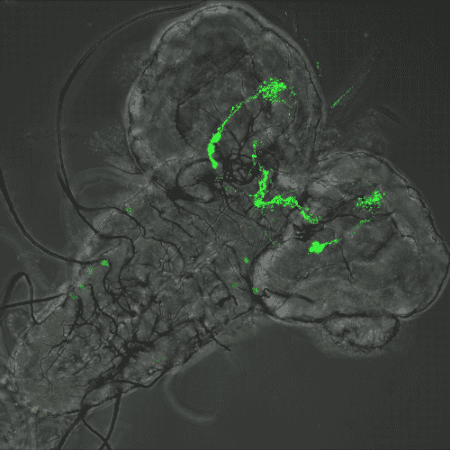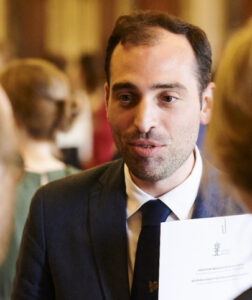The environment in which the animal develop influences the physiology and behavior of future adults. However, the molecular mechanisms involved remain unclear. This article explores how the taste system of adult flies perceives a bacterial wall compound, peptidoglycan, as an aversive molecule. Unexpectedly, this perception in adult flies depends on the environment in which the larvae, from which they originate, were reared. Indeed, adult Drosophila from larvae reared in axenic conditions lose the ability to perceive PGN as aversive, despite their “aversive” neurons being fully functional. We have identified the few larval neurons that perceive the bacterial signal and identified in the food medium a pathogenic bacterial species, Lactobacillus brevis, as the transmitter of the signal that prime the larvae to become an adult fly capable of perceiving PGN as aversive. Additionally, our findings reveal that the commensal bacterium, Lactobacillus plantarum, is incapable of priming axenic larvae, resulting in adults for whom PGN is neutral. This suggests that larvae detect a molecule produced by pathogenic bacteria, but not by symbiotic bacteria. This larval experience modifies the taste characteristics of the future adult, which perceives PGN as aversive and will potentially avoid this bacterial species. We now have to identify the signal emitted by the bacteria Lactobacillus brevis, and to understand how the information acquired by larval neurons is transmitted to the adult gustatory system in a holometabolous organism undergoing a complete remodeling of its nervous system during metamorphosis.
Shaping Life: An International Conference on Developmental Biology
The upcoming edition of Shaping Life, scheduled for June 3-6, 2025, will be held in Cassis.




